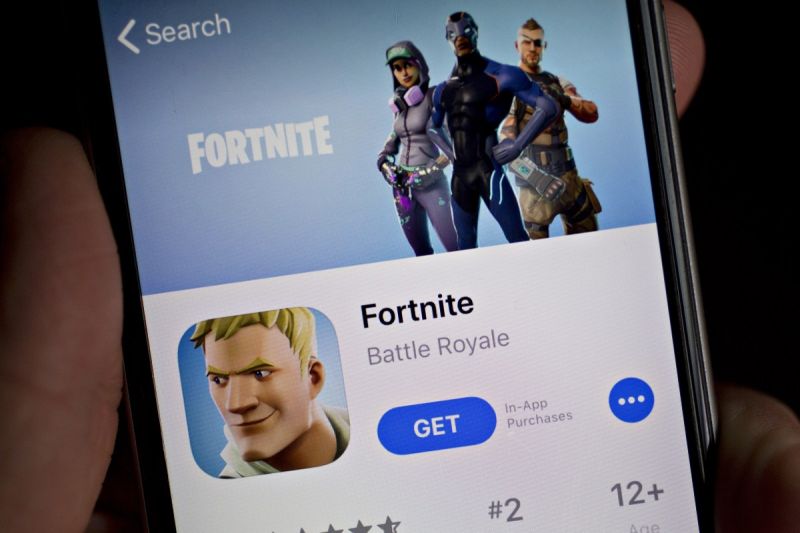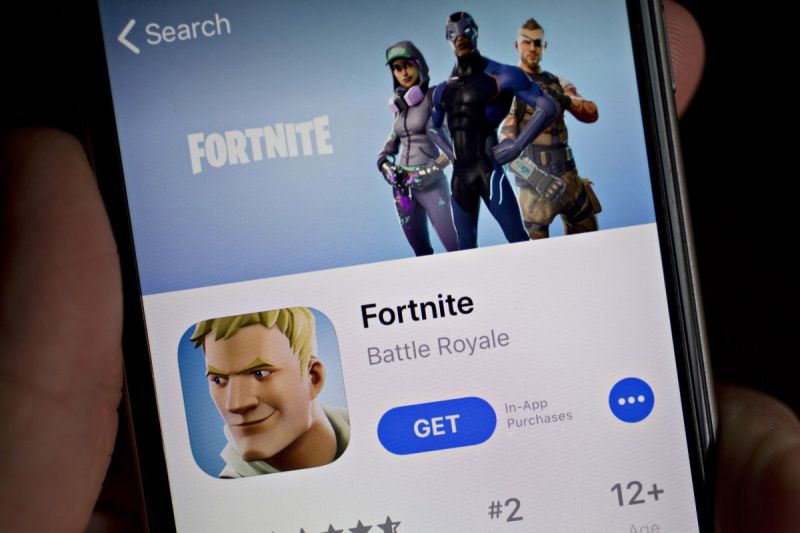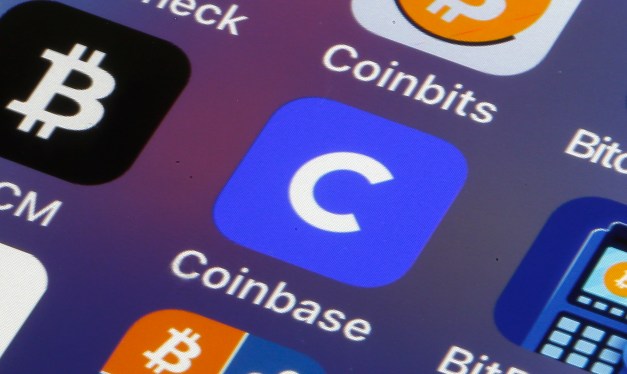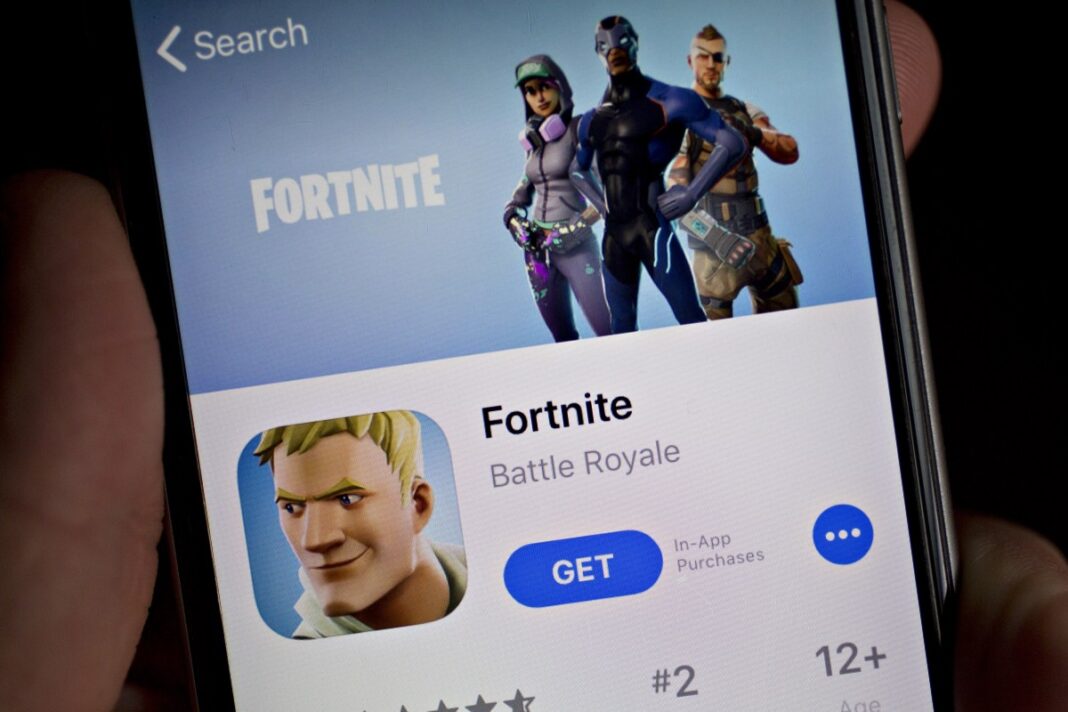In the high-stakes battle between Epic Games and Apple, the plot has thickened. The creator of Fortnite, one of the most popular games in the universe, has taken a bold step, asking a judge to intervene and compel Apple to greenlight the game’s return to the App Store. The move marks a dramatic escalation in the ongoing feud, which has been making headlines for months. As the tech giant and the gaming behemoth engage in a war of words, the fate of Fortnite hangs in the balance. But what’s really at stake here? Is it just about one game, or is it about the future of the entire gaming ecosystem?
The Ongoing Feud Between Epic Games and Apple

Epic Games’ frustration with Apple’s App Store policies has been building for years, culminating in a lawsuit that has far-reaching implications for the tech industry.
The Background of the Dispute
The dispute centers around Apple’s commission on in-app purchases, which Epic Games claims is anti-competitive and unfair. The tension has been building for years, with Epic Games filing a lawsuit against Apple in 2020.
The lawsuit has seen many twists and turns, with key rulings and decisions shaping the case. In a major victory for Epic Games, Judge Yvonne Gonzalez Rogers ruled that Apple was in “willful violation” of an injunction on anti-competitive pricing.

Epic’s Recent Filing and Apple’s Response
In a recent filing, Epic Games asked Judge Rogers to require Apple to accept any compliant version of Fortnite onto the U.S. storefront of the App Store. This move is seen as a way to pressure Apple into complying with the court’s ruling.
Apple, however, has responded by announcing that it will appeal the ruling, citing concerns about the Ninth Circuit’s ruling on the injunction. This appeal has significant implications for Fortnite and developers.
In a surprising move, the company has also blocked Fortnite from its U.S. App Store and prevented it from being released on the Epic Games store in Europe. This move has been seen as a way to punish Epic Games for challenging Apple’s practices.

Analysis of Apple’s Tactics and Motivations
Apple’s actions have raised concerns about the company’s motivations and tactics. By blocking Fortnite, Apple is sending a clear message to developers not to challenge its practices. This move has significant implications for developers and consumers alike.
Experts have noted that Apple’s actions are a way to maintain its control over the App Store and its commission on in-app purchases. This move has sparked concerns about the impact on innovation and competition in the tech industry.
The Impact of Apple’s Actions on Fortnite and Developers

Apple’s actions have significant implications for Fortnite and developers. The blocking of Fortnite has resulted in the shutdown of the game on iOS in the United States and Europe.
The Consequences of Blocking Fortnite
The blocking of Fortnite has resulted in the potential loss of revenue and user engagement for Epic Games. The effects on the game’s community and player base have also been felt.
Experts have noted that Apple’s actions have significant implications for developers. The message being sent is clear: do not challenge Apple’s practices or face the consequences.

The Message Apple Sends to Developers and the Industry
Apple’s actions have sparked concerns about the impact on innovation and competition in the tech industry. The message being sent to developers is clear: do not challenge Apple’s practices or face the consequences.
Experts have noted that Apple’s actions have significant implications for the future of the tech industry. The company’s actions are seen as a way to maintain its control over the App Store and its commission on in-app purchases.
The Risk of Retaliation Against Developers Who Push for Change

The ongoing dispute between Epic Games and Apple has brought to the forefront the risks faced by developers who challenge the status quo. Epic Games’ efforts to push for change in the App Store’s payment policies have been met with resistance from Apple, which has blocked Fortnite from its U.S. App Store and prevented its release on the Epic Games store in Europe.
This move by Apple has been seen as a warning to other developers who may be considering challenging the company’s practices. By blocking Fortnite, Apple is sending a clear message to developers that they will face retaliation if they try to push for change.
The Potential Consequences for Innovation and Competition in the Industry
Alternative Payment Options and the Future of the App Store
The ruling in favor of Epic Games last month seemed to pave the way for developers to offer alternative payment options in their apps. However, Apple’s decision to appeal the ruling and block Fortnite from its App Store has put a damper on these plans.
If Apple is successful in blocking alternative payment options, it could stifle innovation and competition in the industry. Developers may be discouraged from pushing for change, and the App Store may become even more restrictive.
On the other hand, if Epic Games is successful in its efforts, it could lead to a new era of competition and innovation in the industry. Developers may be encouraged to offer alternative payment options, leading to a more competitive market.
The Broader Implications of the Dispute
The Potential for Regulatory Intervention
The dispute between Epic Games and Apple has highlighted the need for regulatory intervention in the App Store. The ruling in favor of Epic Games has shown that the court system can be an effective way to push for change.
Government agencies may take note of the dispute and consider legislation or regulation to address Apple’s practices. This could lead to a more level playing field for developers and a more competitive market.
However, regulatory intervention could also have unintended consequences. It could lead to a more restrictive App Store, which could stifle innovation and competition.
The Impact on Consumer Choice and Innovation
The Potential Benefits of Alternative Payment Options and Competition
The dispute between Epic Games and Apple has highlighted the need for alternative payment options and competition in the App Store. If developers are allowed to offer alternative payment options, it could lead to more choices for consumers.
Consumers may be able to choose from a range of payment options, leading to a more competitive market. This could lead to lower prices and better services.
the other hand, if Apple maintains its current practices, it could lead to reduced innovation and choice for consumers.
The Future of the App Store and the Industry
The Possibility of Apple Changing Its Practices in Response to Pressure
The dispute between Epic Games and Apple has put pressure on Apple to change its practices. Apple may be forced to reconsider its commission rates and allow developers to offer alternative payment options.
This could lead to a more competitive market, with new players and innovators entering the market. The App Store could become a more open and competitive platform.
However, the future of the App Store and the industry remains uncertain. It is important to continue to monitor and analyze the situation, and to consider the interests and needs of consumers.
Conclusion
As Epic Games pushes Apple to approve Fortnite’s return to the App Store, the tech world is abuzz with the implications of this high-stakes battle. At its core, the dispute revolves around Apple’s 30% commission on in-app purchases, which Epic claims is an unfair and anti-competitive practice. By seeking a judge’s intervention, Epic is attempting to break free from the shackles of Apple’s walled garden and give gamers greater control over their digital experiences.
This tug-of-war between behemoths of the tech industry has far-reaching implications, extending beyond the realm of Fortnite to the broader landscape of app development and online commerce. The outcome will likely shape the direction of digital distribution and the business models that underpin it. As the dust settles, we can expect a new era of innovation and competition to emerge, as developers and startups seize the opportunity to create alternative platforms and services that cater to the needs of consumers.
As the question of “do no harm” to consumers and developers hangs in the balance, one thing is clear: the fate of Fortnite and the future of the App Store hang precariously in the balance. Will Apple’s grip on the App Store begin to loosen, allowing for a more level playing field and greater freedom for developers? Or will the tech giant continue to wield its significant influence, maintaining its stranglehold on the digital landscape? The answer, much like the fate of Fortnite, remains shrouded in uncertainty – but one thing is certain: the stakes have never been higher, and the consequences will be felt for years to come.
